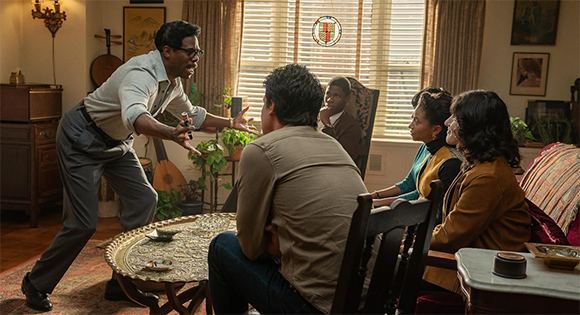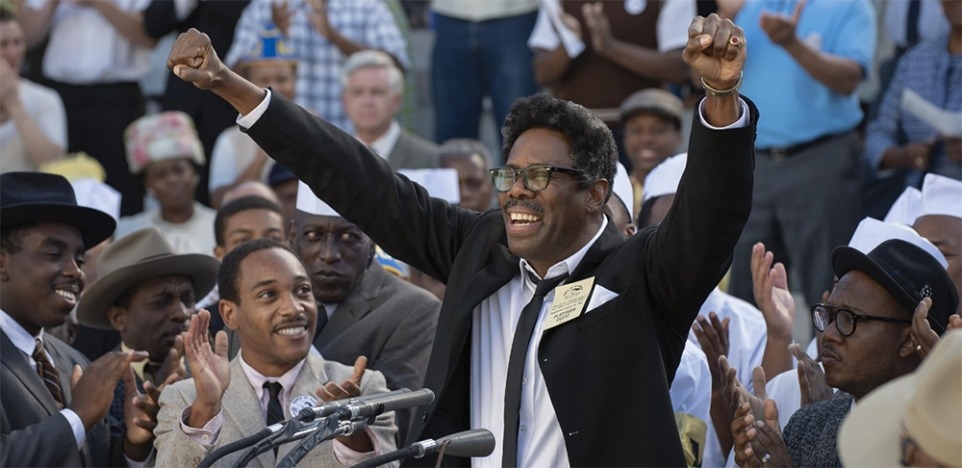“We are made of stories and stardust. We tell the stories of holy troublemakers and unconventional saints, people of faith who have worked for love, justice, and compassion, to inspire us, make us bold, and connect us to each other and the Love that makes us one.”
— Daneen Akers at Holytroublemakers.com
This inspiring biopicture delivers a fiery portrait of Bayard Rustin (1912 – 1987), a civil rights activist in the 1960s. The film establishes at the outset why his impact has been largely overlooked in histories of the movement. He was openly gay, and there was jockeying for power among the leaders surrounding Dr. Martin Luther King, Jr.
With those facts out of the way, the film moves on to show us why Rustin (Colman Domingo) should be honored. He organized one of the most influential events in the civil rights movement – the March on Washington for Jobs and Freedom in 1963 when Dr. King (Aml Ameen) gave his “I Have a Dream” speech. It is an amazing achievement.
When Rustin proposes the idea of a gathering on the mall to prove that Black Americans would come from all over the country to stand up for their rights and gain the attention of the Kennedy Administration; other civil rights leaders are skeptical. But Rustin perseveres. He gathers a group of young volunteers to organize the event on the mall, addressing issues like security, sanitation, and food. The team calls people, recruits local organizers in all the states, and helps arrange for buses to bring the people to Washington. Rustin has told the other leaders that he can get 100,000 people to come. On August 28, 1963, some 250,000 people show up.

Colman Domingo inhabits many aspects of Ruskin’s personality. He is hurt when he is removed from King’s inner circle. He is kind and understanding with a lover. He is charismatic and forceful leading his volunteers under the press of a deadline.
Whereas these vignettes point to the character of the man, nothing does so as effectively as the awareness that his activism was fueled by his being a Quaker devoted to nonviolence. Rustin once said:
“My activism did not spring from my being gay, or, for that matter, from my being Black. Rather, it is rooted fundamentally in my Quaker upbringing and the values that were instilled in me by my grandparents who reared me. Those values are based on the concept of a single human family and the belief that all members of that family are equal.”
